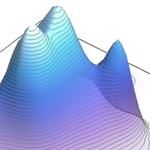Turn on suggestions
Auto-suggest helps you quickly narrow down your search results by suggesting possible matches as you type.
Options
- Subscribe to RSS Feed
- Mark Topic as New
- Mark Topic as Read
- Float this Topic for Current User
- Bookmark
- Subscribe
- Mute
- Printer Friendly Page
Discussions
Solve problems, and share tips and tricks with other JMP users.- JMP User Community
- :
- Discussions
- :
- How to open a file directly on the public network server?
- Mark as New
- Bookmark
- Subscribe
- Mute
- Subscribe to RSS Feed
- Get Direct Link
- Report Inappropriate Content
How to open a file directly on the public network server?
Created:
Jun 6, 2023 07:58 PM
| Last Modified: Jun 9, 2023 9:11 AM
(1069 views)
Thanks!
serverIP = "999.888.38.99";
serverfilepath = "C:\3\123.json";
serverusername = "Administrator";
serverpassword = "test";- Tags:
- windows
1 REPLY 1
- Mark as New
- Bookmark
- Subscribe
- Mute
- Subscribe to RSS Feed
- Get Direct Link
- Report Inappropriate Content
Re: How to open a file directly on the public network server?
The search term you are looking for is "UNC name". Something like this, if the server exposes the path for your credentials:
\\192.168.99.88\xxx\yyy.csv
servers inside your organization usually have names, so maybe
\\zzzserver\xxx\yyy.csv
That's for windows. Mac is different.
Or, you can set it up as a drive letter on your local machine and ignore the UNC name. The UNC name is more portable if you have several machines you might run a script on (because it takes work to make the drive letter mapping be the same on many machines.) The drive letter mapping provides a nice indirection if the data might move from server to server...remap the "z:" drive and scripts that use z: keep working.
Craige
Recommended Articles
- © 2025 JMP Statistical Discovery LLC. All Rights Reserved.
- Terms of Use
- Privacy Statement
- Contact Us

